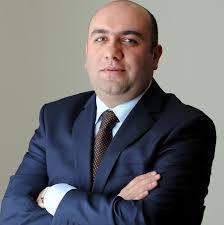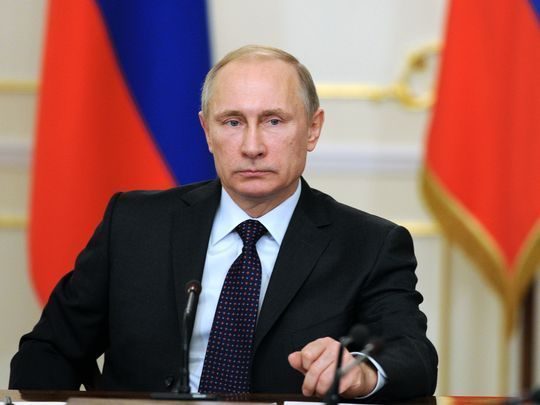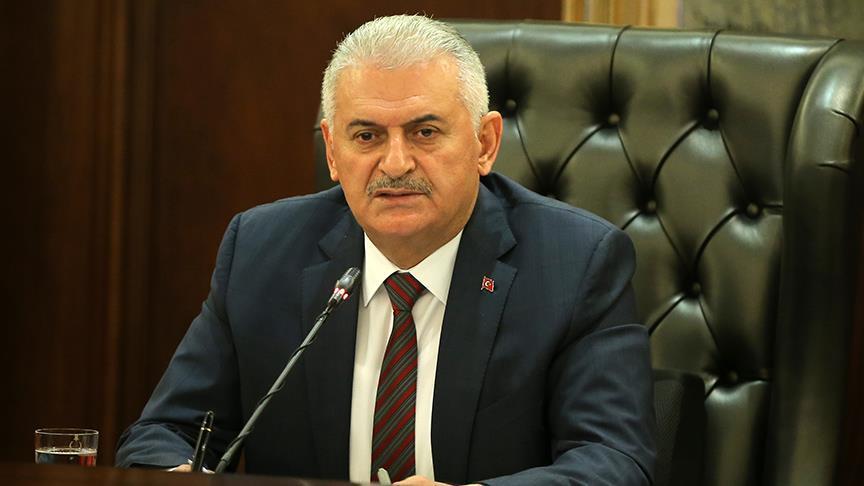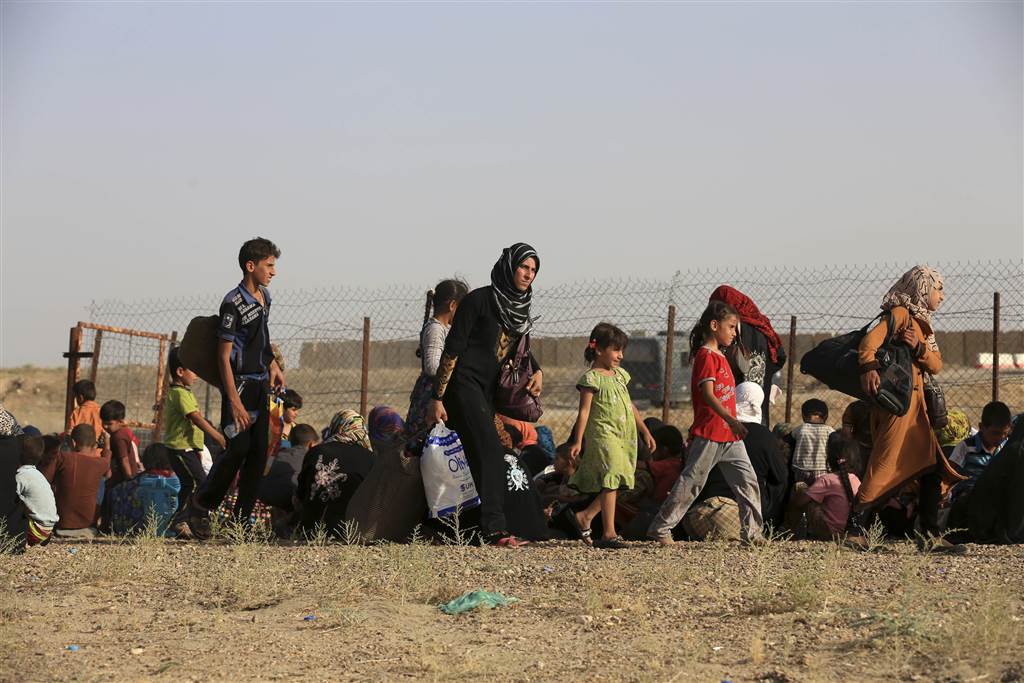
BY: ÇETİNER ÇETİN*
Following his talks in Bagdad and Erbil two weeks ago, it became apparent that U.S. Deputy Secretary of State Tony Blinken imposed the second nightmare scenario for the Iraqis after the 2003 invasion. A Bagdad-based coordination center was founded for preparations for the Mosul operation which gained speed after Blinken’s visit. Given that Arabs and Sunnis constitute the majority in the second largest Iraqi city of Mosul, it is considered to be the second nightmare scenario to start the operation by adhering Shiite militia forces to the untrained Iraqi military which abandoned the city within six hours two years ago.
Mosul’s status was the basic and the most important issue that was addressed while determining the current borders of Iraq between regional and international powers 100 years ago. Likewise, the city has a strategic position in the eyes of many regional and international political players today.
It is a highly likely that Mosul will turn into a deadlock for the Kurdistan Regional Government’s (KRG) security in the post-DAESH period. Moreover, the formation of a strategic security cordon spanning from the southeast to the northwest of Mosul will make a great contribution to overcoming the possible deadlock.
Possibility of DAESH becoming Talibanized
The political and military situation in Iraq obliges to expand anti-DAESH coalition and remove the organization from Mosul. However, DAESH is not only a military or security-related problem. It also has a strong ideological and social aspect. Therefore, DAESH will not end with the seizure of Mosul.
It is highly likely that DAESH will lose Mosul, however, it will maintain its presence as a Talibanized jihadist and armed force. The Shiites’ exclusion and radicalization of the Sunnis in a dominant manner within Iraq’s political mechanism associated the Sunnis with Al Qaida in the past. Likewise, it associates the Sunnis with DAESH in the new period. In other words, it will not have a territory to rule like the Afghan Taliban, however, it will continue to exist as a mobilized force – which will increase the KRG’s security problems.
Signals of internal strife in Mosul in post-DAESH period
There is a deep ideological, historic and geographical security reason behind the Sunni-Shiite and Arab-Kurd strives. Mosul might be a focus point of change and transformation amid these strives which might escalate into an armed conflict. In other words, if Mosul bursts, Bosnia and Herzegovina remains like a picnic area in comparison, as Mosul’s fire might terrorize the whole region.
Kurds have set an option for independency through their government and armed forces since 2013. They conflict with Bagdad almost in all issues and cannot finalize hundreds of unresolved negotiations. Kurdistan Regional Government (KRG) President Masoud Barzani rules the
government with a confederal system like the EU since 2003, instead of with a federal government as the Iraqi Constitution defines.
The Iraqi currency is the only sign showing Bagdad’s formal domination on the KRG. Now, Sunnis demand autonomy too, and they have already began forming their own armed forces named Hash Al Watani. Turkey’s support for them is crucial. Bu for not Turkey’s support, Sunni tribes, which strive to exist in the political system, might become radical and turn into a direct part of structures like DAESH.
The presence of a Sunni region which is in alliance with the KRG might strengthen the KRG’s security area, however, it might lead to border-related problems in the long term. On the other hand, Shiite Iraqis still remain hopeful about founding the Iraqi state and want a monolithic Iraqi state which will be the second Shiite state in the region. Iraqi Kurds hardly support the idea. However, Iraqi Shiite leaders’ political track records reveal that they were the opponents of Saddam Hussein and the Ba’ath regime in the period that followed the first Gulf war of 1992 and they conducted politics in Sulaymaniyah. This information reveals that all Shiite leaders with the exception of Nouri al-Maliki are under the protection of the Kurdish administration and that a process of natural political relations between Kurds and Shiite has begun. He founded the largest Shiite sanctuary of Husainiah Mosque to enable Talabani Shiite leaders to worship freely in Suleymaniyah where Sunni Kurds constituted the large majority. Although Kurds are very close to a reconciliatory ground with Shiite leaders with the exception of al-Maliki, they function as an important element of balance between Sunnis and Shiites.
However, the issue of anti-DAESH fight has turned into a strong argument enabling Shiites to prevent Kurds and Sunnis’ plans.
Mosul operation and power balances
Having had quite a weak state outlook after 2013, Iraq fails to ensure control and security in all regions within its borders. It might seem ironic, but the fact that the Bagdad administration cannot control everything even in the city’s center where Sunnis and Shiites are strictly separated from each other reveals that it has limited domination even in the capital city. Therefore, Iraq has turned into a conflict area for regional countries and international forces. The most of powerful states in the region and the world support political and armed groups for their own interests. This also affects Mosul’s status. Last year, it was found that a cargo plane landed in the Mosul airport with weapons and ammunition – an issue which was brought to the Iraqi parliament’s agenda. However, Bagdad remained helplessly watching the incident.
Iran’s support to al-Hashd al- Shaabi, a pure Shiite militia power, Turkey and Saudi Arabia’s support to Hash Al Watani, tactical supports given to Kurds and the U.S.’s pragmatic attitude prove the situation.
After the removal of DAESH from Mosul, it is highly likely that the interests of these countries will clash and they will try to protect their interests through their partners inside the city. Therefore, it is crucial that Turkey becomes a party to negotiations.
1- Ankara-Erbil relations are on a regional and strategic level. In this regard, Kurds have been under the protection of Turkish soldiers since 1996. Turkey has been present in many military bases since 1996 and Kurdish leaders Masoud Barzani and Jalal Talabani have never attempted to remove these soldiers. When the special army named the Tigris Operations Command, which was founded during al-Maliki’s term, marched against Kurds, Erdoğan was the first to object it.
2- A total of 420,000 Turkmens lives in Tal Afar, including its provinces and villages, constituting almost the entire population in the city. In other words, it is the densest city where the Middle East’s Turkmen population lives together. The fact that 65 percent of Tal Afar’s Turkmens are Shiite is not a point of conflict for Ankara which views the Turkmen issue from the perspective of consanguinity, not of the Sunni-Shiite discrimination.
3- Since the beginning of the invasion of Iraq, Ankara wanted Iraqi Sunnis to take part in the political system. Likewise, it wanted Iraqi Sunnis to take part in the political system for the sake of Iraq’s territorial integrity against Shiites’ exclusivist political attitude in two general elections in 2005. Ankara brought together Sunnis who joined elections in 2010. From this point of view, Sunnis feel serious sympathy to Ankara.
4- On the other hand, Ankara always kept dialogue channels open with Iraq’s significant Shiite politicians and opinion leaders like Ammar al-Hakim, Ayad Allawi and Ibrahim al-Jaafari, so much so that Erdoğan broke the routine by going to Najaf to visit Shiite religious leader Ali al-Sistani during his visit to Iraq in 2011. This was the first visit to be paid by a state leader. Based on all this, Ankara is open to negotiate with all Shiites with the exception of al-Maliki. Let us note that Haider al-Abadi is a crony of al-Maliki.
5- As a result of instability, authority and power gap that emerged in Iraq after DAESH’s seizure of Mosul in June 2014, the PKK terrorist organization became active in a line spanning from Sinjar in northwestern Iraq where Yazidis live, to Khanaqin in eastern Badgad where Shiites, Kurds and Turkmens live, which are the territories controlled by the KRG, through the U.S.’s active support. The most important detail which was overlooked while the Middle East was turning into a hell was the fact that the PKK began organizing outside of Syria by establishing bases in Iraq. Under the pretext of fighting DAESH, it became present in Sinjar, Kirkuk, Tuz Khurmatu and Khanaqin. Ankara will no more sit back and watch this process.
6- Despite the PKK’s activities on this territory, the Iraqi government or official authorities have not taken a step against the organization which Iraq lists among terrorist organizations. The U.S. provides logistical, material and military support to the Sinjar Resistance Units (YBŞ) which was founded in Sinjar under the leadership of the PKK through the U.S. Embassy to Iraq and military advisors in the region to protect Yazidis. The arms support sent to the YBŞ over the past 14 months exceeds $38 million.
Picture is very clear
Just before the Sunni-Shiite and Arab-Kurd rift in Iraq turns into deep ideological, historic, geographical and security-related clashes, the U.S. and Iran want to initiate the process through the Mosul operation. So, they are going to all lengths to exclude Turkey from negotiations over this critical operation. The only purpose of false fatwas conveyed through religious leaders, diplomatic messages given in political arena and warmongering statements is to keep Turkey out of the process.
The Turkish Armed Forces (TSK) moved toward the region upon the invitation of Barzani and Talabani in 1994 and established 11 military bases on Iraqi territory. The 1996 Ankara Agreement, which was also signed by the U.S. despite resorting to all tricks to exclude Turkey from negotiations, and in which the U.K., Turkey, Kurdistan Democratic Party (KDP), Patriotic Union of Kurdistan (PUK) and Turkmens took part as observers, made Turkish military a protective shield in the region.
Since 2003, the Bagdad administration made at least eight parliamentary decisions to remove Turkish soldiers from the region. However, neither Barzani nor Talabani practiced them. When Al-Maliki marched against the Kurdish government with the Tigris Operations Command, Erdoğan said this was unacceptable, relying on the presence of Turkish soldiers since 1994.
The most important point where Bagdad contradicts with itself is the fact that it threatens to interfere in the presence of Turkish military in the Bashiqa camp, claiming that it is not legal, although Iraqi defense minister visited the camp and examined trainings last year.
*Çetiner Çetin is a Turkish journalist. He wrote this article exclusively for the Middle East Observer on Saturday, Oct. 8, 2016.



